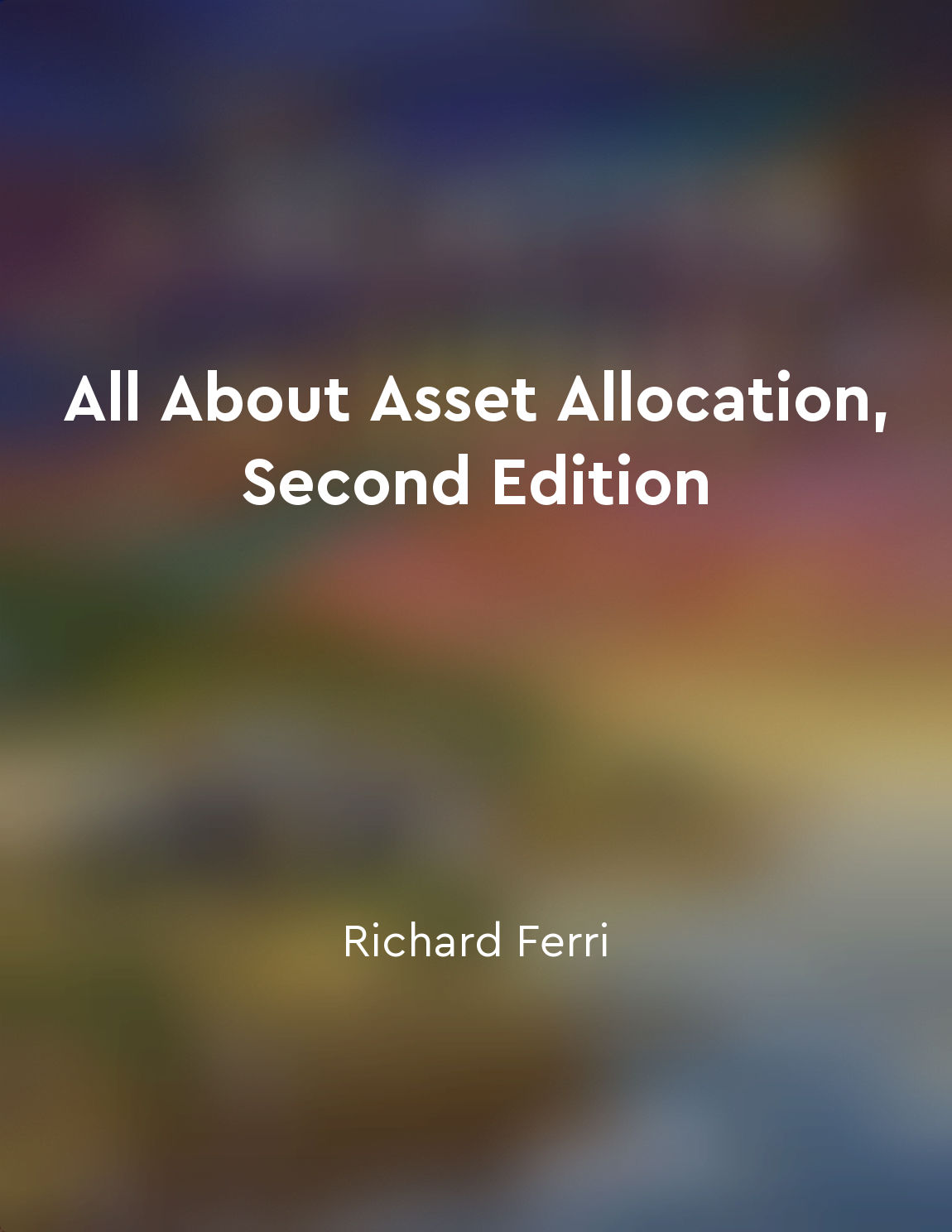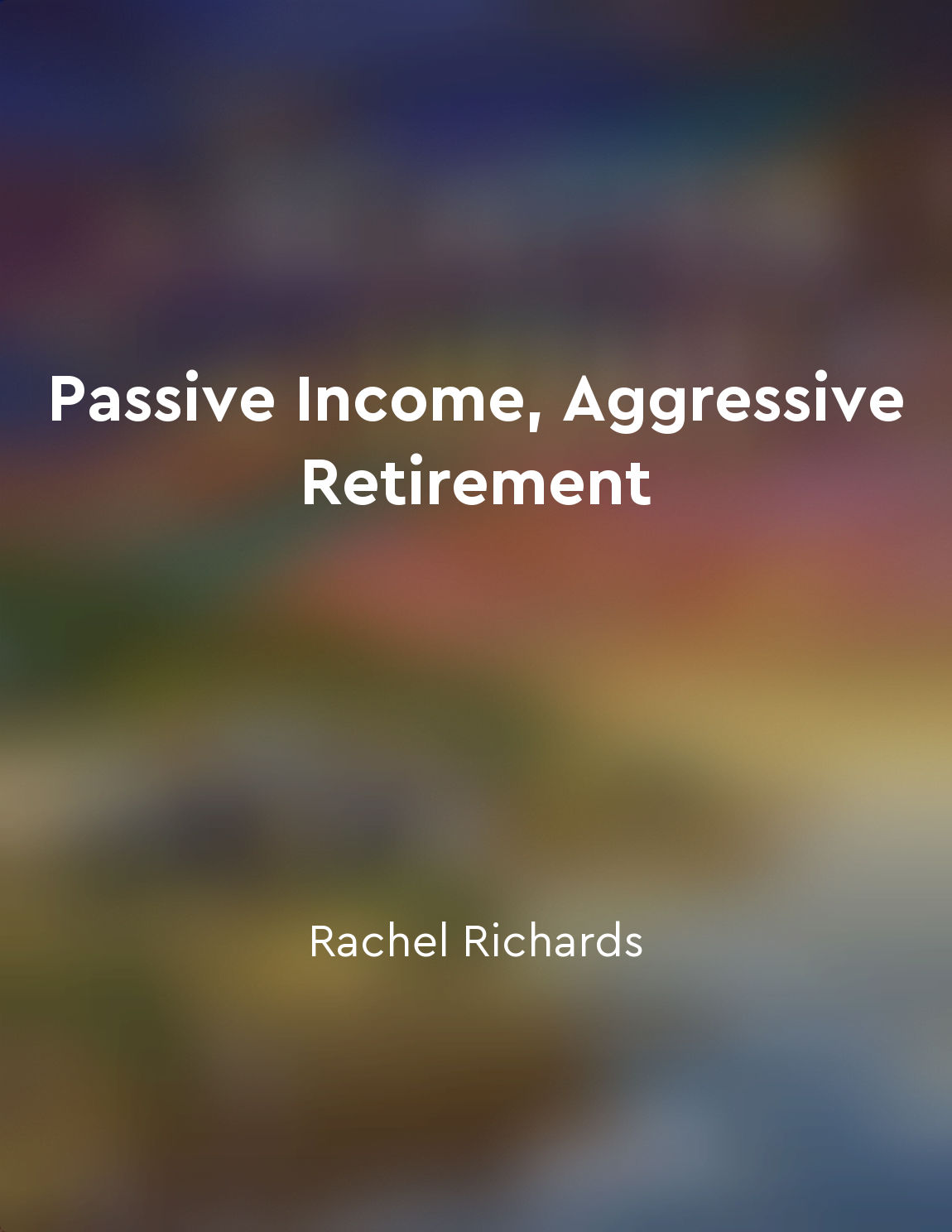Passive investing through index funds is a costeffective strategy from "summary" of All About Asset Allocation, Second Edition by Richard Ferri
Passive investing through index funds offers a cost-effective way to build a diversified portfolio without incurring high fees associated with actively managed funds. Index funds are designed to track the performance of a specific market index, such as the S&P 500, by holding a basket of securities that mirrors the index's composition. By investing in index funds, investors can gain exposure to a broad range of assets at a low cost, as these funds typically have lower expense ratios compared to actively managed funds. One of the main advantages of passive investing through index funds is the simplicity it offers to investors. Instead of trying to pick individual stocks or time the market, investors can simply buy and hold index funds that provide broad market exposure. This passive approach eliminates the need to constantly monitor and adjust the portfolio, saving investors time and effort. Additionally, index funds are transparent in their holdings, making it easy for investors to understand what they are investing in. Another key benefit of index funds is their cost-effectiveness. Actively managed funds often charge higher fees to cover the costs of research, trading, and management. These fees can eat into investors' returns over time, especially when compounded over a long investment horizon. In contrast, index funds have lower expense ratios because they passively track an index and do not require active management. As a result, investors can keep more of their investment returns without sacrificing diversification. Furthermore, index funds are known for their consistency in performance. While actively managed funds rely on the skill and expertise of fund managers to outperform the market, index funds aim to match the performance of the underlying index. While this may not result in market-beating returns, it provides investors with a reliable and predictable way to participate in the market's growth over the long term. By maintaining a diversified portfolio of index funds, investors can reduce the risk of underperformance and achieve more consistent returns over time.- Passive investing through index funds offers a straightforward and cost-effective strategy for building a diversified portfolio. By investing in index funds, investors can benefit from broad market exposure, low costs, simplicity, transparency, and consistent performance. This approach allows investors to focus on their long-term investment goals without the distractions of active management and high fees.
Similar Posts
Plan for unexpected expenses
One of the most important aspects of managing your finances is being prepared for unexpected expenses. No matter how well you p...
Continuously educate yourself on personal finance
To achieve financial independence, it is crucial to prioritize learning about personal finance. This involves consistently seek...

Teach your children about money
The importance of teaching your children about money cannot be overstated. Financial literacy is a crucial life skill that will...
Stay informed about the companies you invest in and be prepared to adjust your strategy when necessary
As an intelligent investor, it is crucial to keep yourself updated on the companies you have invested in. This means staying in...

Understanding risk tolerance is crucial in determining asset allocation
Before deciding on an asset allocation strategy, it is essential to understand your risk tolerance. Risk tolerance refers to an...

Spend consciously on things that bring you joy
One of the key principles I advocate for in managing your finances is spending consciously on things that truly bring you joy. ...
Make mindful decisions about housing and transportation
When it comes to your housing and transportation, it's important to approach these decisions with mindfulness. Housing is often...
Consider the company's management team
When looking for potential investments, it's crucial to pay close attention to the individuals running the show at the companie...
Avoid debt as much as possible
Debt is a burden that can weigh heavily on your financial well-being. It can restrict your ability to save and invest, leaving ...

Real estate investments can provide steady passive income streams
Real estate can be a powerful tool for generating passive income. When you invest in real estate, you have the potential to ear...

